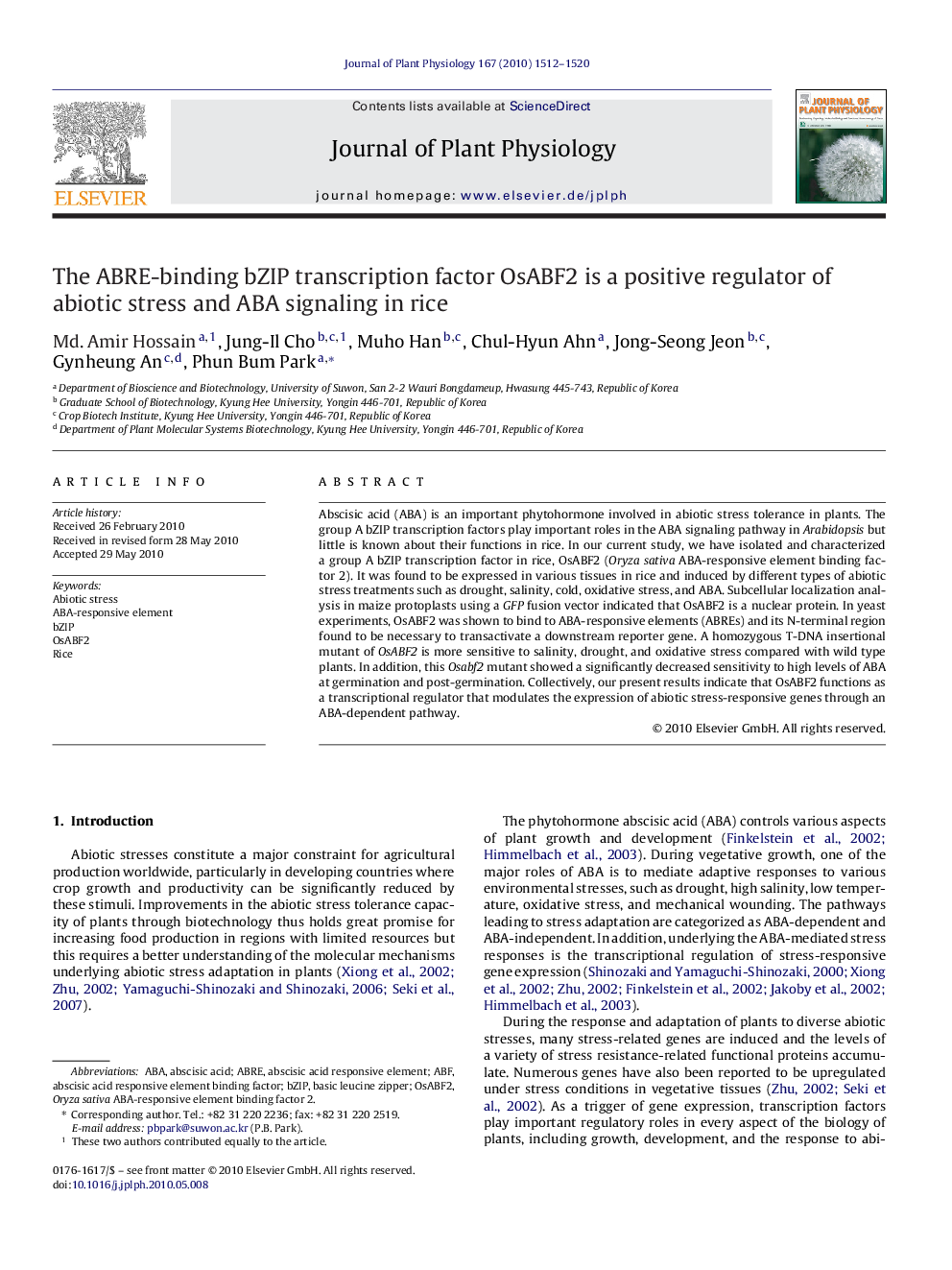| Article ID | Journal | Published Year | Pages | File Type |
|---|---|---|---|---|
| 2057818 | Journal of Plant Physiology | 2010 | 9 Pages |
Abscisic acid (ABA) is an important phytohormone involved in abiotic stress tolerance in plants. The group A bZIP transcription factors play important roles in the ABA signaling pathway in Arabidopsis but little is known about their functions in rice. In our current study, we have isolated and characterized a group A bZIP transcription factor in rice, OsABF2 (Oryza sativa ABA-responsive element binding factor 2). It was found to be expressed in various tissues in rice and induced by different types of abiotic stress treatments such as drought, salinity, cold, oxidative stress, and ABA. Subcellular localization analysis in maize protoplasts using a GFP fusion vector indicated that OsABF2 is a nuclear protein. In yeast experiments, OsABF2 was shown to bind to ABA-responsive elements (ABREs) and its N-terminal region found to be necessary to transactivate a downstream reporter gene. A homozygous T-DNA insertional mutant of OsABF2 is more sensitive to salinity, drought, and oxidative stress compared with wild type plants. In addition, this Osabf2 mutant showed a significantly decreased sensitivity to high levels of ABA at germination and post-germination. Collectively, our present results indicate that OsABF2 functions as a transcriptional regulator that modulates the expression of abiotic stress-responsive genes through an ABA-dependent pathway.
